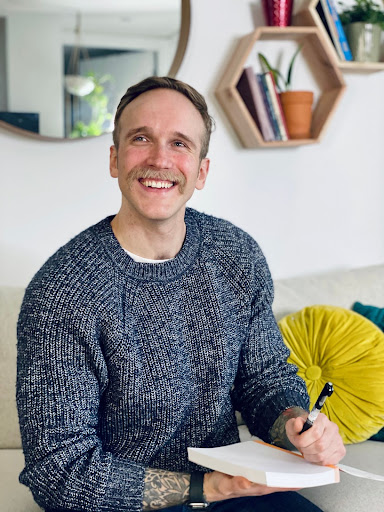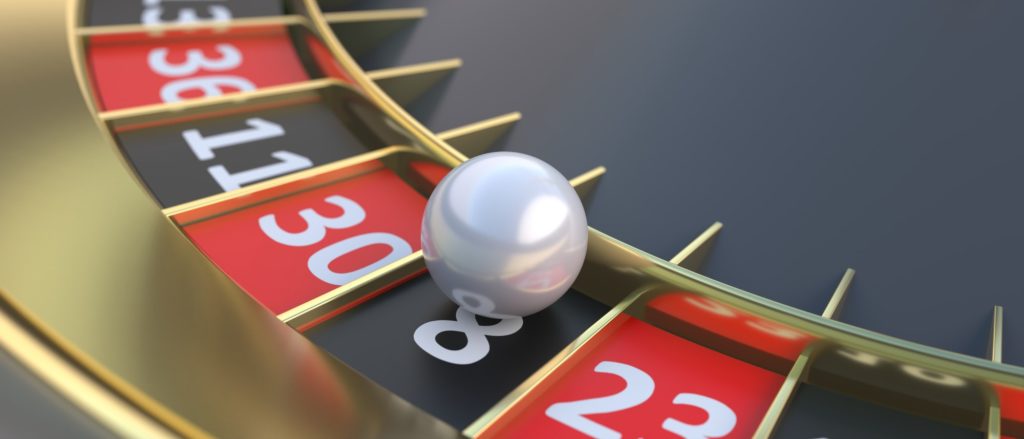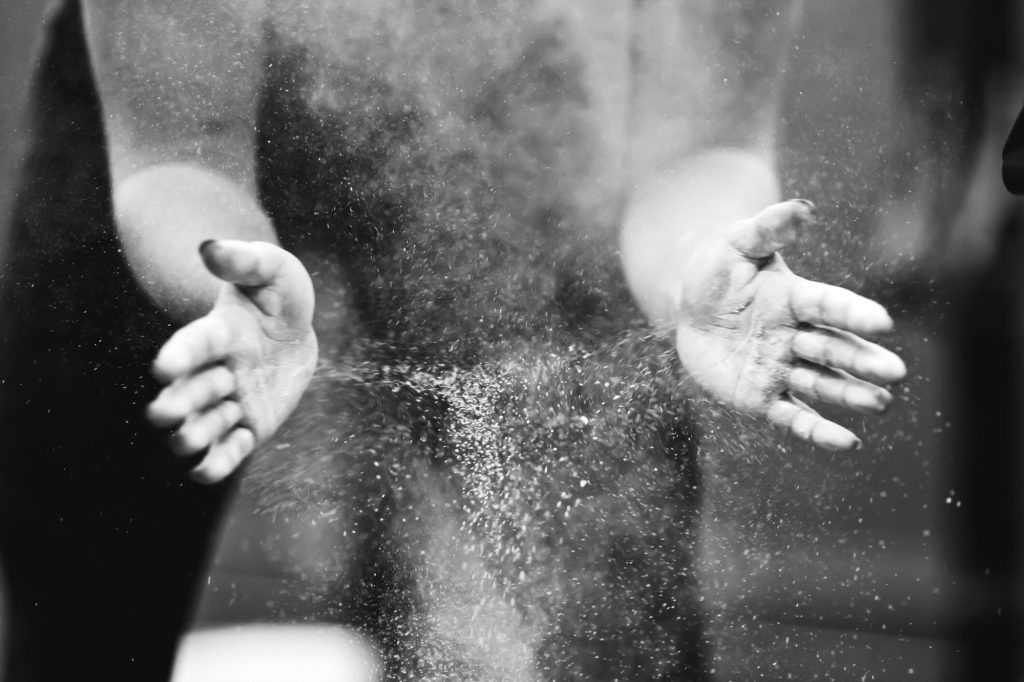As I type these words on my keyboard I am aboard an Irish Rail train en route to Galway. We just spent the past five days in Dublin being tourists making the typical pit stops at sites like Trinity College, the Temple Bar neighborhood, and I even had a Guinness at the renowned Gravity Bar atop the Guinness factory.1
We still have several more days lined up exploring the sites of Ireland with everything culminating in Belfast where we plan to hit up the Titanic Belfast Museum as well as the Giants Causeway and a few filming locations of Game of Thrones.
#nerdlife.
Suffice to say I am in no mood to write new content. Thankfully my man Paul Levitin was thoughtful enough to send me a guest post before I left on my trip. He’s written a handful of excellent posts in recent months and this one no different.
Enjoy!

4 Tips I’d Give Myself on Day 1 of My Fitness Journey
After working in a gym for nearly a decade, and collecting every certification under the sun, it’s easy to become jaded and say “everyone knows this stuff.”
Factually, most people do not.
Today, instead of thinking about where I am now, with 10 years of experience, I want to go back.
It’s easy for me to say “I don’t count calories anymore,” but that’s because I counted calories for nearly a decade, and I have more nutrition labels memorized than I do phone numbers at this point.
So If I had to start from scratch, if today was day 0 of my fitness journey, where would I begin?
Knowing what I know now, what would I do to most leverage my time and energy?
One thing is for sure: When I first started, I had no clue what I was doing. I wasted a lot of time, literally years doing the wrong things. I wasted money, buying useless supplements and other gimmicky products like sauna suits.
So if i could travel back in time to the first day of my fitness journey, here are my 4 tips that I would give my 17 year old self:
1. Don’t Overlook the Simple. Don’t Overvalue the Complex
Some things are so simple, so easy, I just couldn’t understand how they might be helpful
Things like, parking farther away at the parking lot, taking the stairs instead of the elevator, walking to the store instead of driving.
Like, yea, I get it, you get some steps, but could the hundred steps it takes to get from one end of the parking lot to the other, or the extra two minutes it takes to walk three flights of stairs instead of taking the elevator really make a difference?
It turns out that yes, yes it can.
Most people think that exercising, whether it’s lifting weights or doing cardio or anything else, represents a huge amount of calories being burned.
In reality, an hour of even the most high intensity exercise will only burn a few hundred calories, a small percentage of your daily calorie intake and burn.
The vast majority of your calories are spent each day simply living. Between bodily functions, like keeping your blood pumping and keeping the lights on in your head, to doing daily tasks like walking, eating, typing, and everything else you tend to do.
It makes sense, since simply proportionally, even if you spend an hour in the gym five days a week, that’s only five hours out of 168, which is 8.4%. Just logically, we have much more opportunity during the remaining 91.6% than we possibly could in the exercise time, no matter how hard we try to push it during those 4 or 5 hours.
A key step towards health then becomes trying to do more in your non exercise time. That walk from the end of the parking lot here, taking the stairs there, getting off your train a stop early and walking, or deciding to explore a new city on foot rather than take an Uber, these things can seem trivial, but over days, weeks, months, and years, they add up.
They keep you moving, they keep you burning, and it’s a key habit that all healthy people adopt, either consciously or unconsciously.
2. Eating for Health and Eating for Weight Loss Are Not Necessarily the Same. Exercising for Health and Exercising for Aesthetics Are Not Necessarily the Same
This one throws people through a loop. It definitely took me some time to wrap my head around.
I saw countless clients as a nutrition coach, as well as myself, getting frustrated saying “I’m eating so healthy, but I’m not losing weight!” That’s because these goals are not one in the same, and taken to extremes, can actually be counter to one another.
The problem comes from the ambiguous definition of “healthy.” To many people seeking to lose weight, they use the terms interchangeably.
A doctor, nutritionist, or health blog however, might use the term “healthy” to mean more nutritious, with more healthy fats. This however might mean more calories, which means that a big bowl of almonds every day might be hurting your weight loss, more than helping it.

Or, some “naturalist” type, might say “healthy” to mean less artificial ingredients. To them then, a 200 calorie kombucha would be “healthy,” but a zero calorie, zero sugar diet coke, would not, even though the latter would result in less calories consumed, and thus more potential weight loss than the former.
The same can be said for exercise. Hang around any heavy duty lifting gym for long enough, and talk to enough jacked and shredded bodybuilders and powerlifters, and you know what you’ll hear?
Stories of torn rotator cuffs, blown out backs, and bad knees. Probably some disordered eating as well, and quite potentially, the use of some illicit substances.
People might look “good” (whatever that means), but their health is actually suffering because of it
Now, does this mean these things are mutually exclusive?
Of course not.
You can eat in a way that is both healthy and ideal for weight loss, and you can exercise in a way that makes you look and feel sexy af, while also improving your overall health and longevity.
I am simply saying that this is not inherently the case, and the sooner that you come to grips with that, the less frustrated you will be.
That brings me right to the next point…
3. Optimal Is Only Optimal if You Do It. Don’t Optimize Yourself Out of Consistency
For a long time, I tried to force things,
I was a personal trainer, so I studied the science. I studied the studies.
Squats are more optimal for muscle development than leg press. Cool, no more leg press, only squats.

The optimal weekly routine has you hitting each body part 2 to 3 times per week, that means more focus on big muscle groups like back and legs, and less on arms, abs, and anything smaller.
Optimal cardio is low intensity steady state, those HIIT days are killing your gains. Ok, no more HIIT, only walking. (Jury is back out on this one).
As time went on, I continued to optimize and tweak and adjust, until where I started was nowhere at all where I began.
Now, this in and of itself, certainly isn’t a bad thing. It was the constant learning, optimization, and tweaking that allowed me to achieve the results that I had, like reaching a 500lb deadlift or sub 10% bodyfat.
But that was me. I was a personal trainer, spending seven days in the gym, eating, breathing, and sleeping fitness and nutrition information. It was my life. I was uniquely dedicated, and there was nothing that was going to throw me off course.
Often, people would see what I was doing, be it friends, family, or clients, and try to do the same. Unfortunately, they weren’t me (Sad, I know).
What I mean is, they weren’t coaches. They had lives outside of the gym, they had responsibilities, they had families, they had limited time.
Because of that, often what the science might have said was the most OPTIMAL workout might not fit with their lives.
Beyond that, what is more important, is that what is OPTIMAL does not take into account what is ENJOYABLE.
I was nut, I was going to do whatever it took to get lean and strong.
Normal people, which you might consider yourself to be, might want to, oh, I don’t know, enjoy their exercise routines?
Eat food that doesn’t look like it could be fed to a rabbit?

Crazy huh?
The thing is, in the quest for optimization, individuality is lost.
If we are assuming that there is ONE optimal way, (which we can argue about, and people on the internet surely will) that means that anything other than optimal is inherently deemed “wrong” or “worse”.
That can be disheartening for people who are already struggling with just getting to the gym or getting off the couch, now they are being told they are doing it wrong too.
So while I do think there is a time and place for doing what’s best, not if it comes at the expense of actually doing the damn thing.
So many people these days hear that strength training is the end all be all of exercise. And for good reason, it’s the bee’s knees, the benefits are basically endless.
BUT, if you’re someone who loves Zumba and going for long runs, should those be poo-poo’ed because they aren’t as optimal as lifting weights?
If you try to force yourself into a box, there’s a chance you might fit, but there’s always also a chance you might get claustrophobic and go crazy
This takes experimentation, and some knowledge of self
I’m not saying don’t try to optimize or ever do what’s best. Just saying, tread carefully, and a non-optimal workout routine done consistently for years is infinitely better than the most scientifically optimal workout that you do for 6 weeks then quit because you hate it
Which, brings me to point four,
4. In the Long Game, Consistency Wins. This is the Long Game, Whether You Like it or Not
When I was 17, I cared about one thing, and one thing only: looking good. More specifically, looking good right now. If I absolutely had to wait, I would accept results tomorrow, but beyond that we were really starting to push it.
Unfortunately, at the time, I was living in this dumb stupid super annoying place called “reality.”
It really was the worst.
Every day, I’d go to the gym and do abs, then lift my shirt up, and NO ABS. It was like a cruel joke.
Now you might be saying, been there Paul. And if you have, maybe you know what my next step was: obviously, logically, it was, more.
- More abs!
- More cardio!
- More more more!
Looking back now, I can see how the logic might have been a little flawed. What I’m not doing isn’t working? Hmm, let’s do more of it!
Poor exercise selection and actual workout programming aside, this route couldn’t work for one key reason: it was unsustainable.
I’d sit doing abs in the gym for 2 hours some days, and be so sore the next day I couldn’t move, or so tired and lethargic I’d skip the day’s planned workout.
And simply logistically, there was no way for me to do 2 and 3 hour workouts like that consistently.
The problem was, I was looking at everything with a short-sighted view. Life, on the other hand, is long. So all my plans revolved around getting results as fast as possible, even though I was a teenager, and barely even started my life
And this is unfortunately how most people look at exercise, eating, and health in general. It’s all about now. Some people think about longevity, but it’s an afterthought at best
The thing is, life is going to happen, whether you want it to or not. You are going to get older. You are going to be 30, 40, 60, 80, whatever, at some point. So for better or worse, you might as well start thinking about it now.
Internalizing these 4 tips will help you create a lifestyle that works for you, and you can keep up with. That way, you can be healthy and enjoy it, not for weeks, or months, but years and decades.
About the Author
 Paul Levitin spent a decade as a personal trainer & strength and conditioning coach, becoming the number one trainer in his entire company, while collecting over 30 certificates (CES, CSCS, PRI, PN1, FRC, & many more).
Paul Levitin spent a decade as a personal trainer & strength and conditioning coach, becoming the number one trainer in his entire company, while collecting over 30 certificates (CES, CSCS, PRI, PN1, FRC, & many more).
Wanting to better serve his training clients, he began to study behavior change, and eventually became a Board Licensed Health & Wellness Coach (NBHWC). This led him to create his education and mindset coaching company “The Healthy Happy Human Academy,” where he now helps clients deal with things like self-sabotage and perfectionism, to allow them to build a healthy, happy life.
He seeks to bridge the gap between the worlds of fitness and nutrition, and the frustrated, overwhelmed masses who just want to move more, feel better, and live a little longer.
https://www.instagram.com/paullevitin/
The Healthy Happy Human Podcast
The Healthy Happy Human Academy FREE Facebook Group











